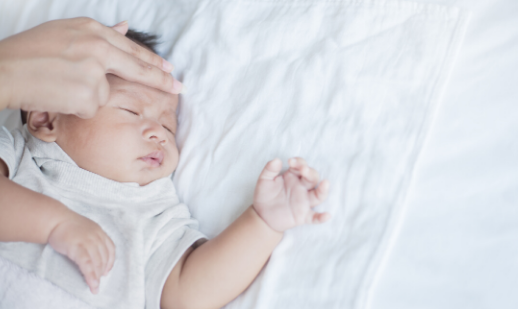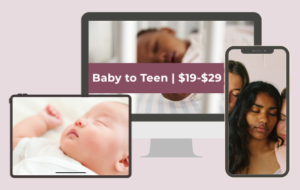As we are navigating through the world of COVID-19 parents of all ages are taking new steps each day to keep their families safe and healthy. For parents of babies this can be a worrisome time, which is understandable. Prevention is the best defense against this virus and understanding your child’s risk and how to help your child avoid getting sick, but also how to help your child feel better if they do get sick can perhaps ease some of those concerns.
According to the CDC:
“Based on available evidence, children do not appear to be at higher risk for COVID-19 than adults. While some children and infants have been sick with COVID-19, adults make up most of the known cases to date. You can learn more about who is most at risk for health problems if they have COVID-19 infection on CDC’s current Risk Assessment page.”
“Breast milk is the best source of nutrition for most infants. However, much is unknown about COVID-19. Whether and how to start or continue breastfeeding should be determined by the mother in coordination with her family and healthcare providers.”
The director of medical innovation at Humber River, Dr. Tasleem Nimjee stated children who show symptoms of COVID-19 will likely not display extreme symptoms.
“They are not the ones requiring the hospitalization. They are not getting the sickest,” said Nimjee. “You’re looking for fever, decreased activity, little bit of fatigue, but not lethargy, running nose, cough, sore throat.”
How to protect ourselves and in turn our children:
- Wash your hands and use hand sanitizer. Kids need clean hands too! I know you already know this but it has to be said. For how to wash your hands and use hand sanitizer properly click here. Also remember, drying your hands is just as important as washing them.
- Practice social distancing to help flatten the curve. We can eliminate this virus if we don’t give it anywhere to go. Reduce unnecessary interactions with others and while we may go stir-crazy staying in and away from large groups it’s the responsible thing to do and in doing so we are protecting those at high risk. We are also helping our healthcare system and those working the frontlines by not causing a surge in cases and more than our hospitals can handle.
- Practice the same things you should always be doing to stay healthy. Keep common household surfaces clean and disinfected daily and wash clothing and bedding in the warmest water setting and dry items completely.
How to help your baby if they get sick:
- The first thing to do is remain calm. It makes sense with the news coverage out there for you to automatically think your baby or child has the Coronavirus. You want to look for:
a fever
a cough
fast breathing
signs of dehydration – not peeing for 8-12 hours, no tears when crying, or being less active than usual.
- Before rushing to the hospital call your doctor. They know your child’s health history and can best direct you on your next steps. They can advise you on whether or not you need an in-person visit.
- With daycares and schools closing down it’s easy now to keep your child away from others. It’s important that if your baby is sick you keep them quarantined and away from high risk individuals like grandparents.
- Keep everyone in your home healthy with continued hand washing and cleaning surfaces and toys.
- Help your child get plenty of rest and drink lots of liquids.
How to help your child sleep better while sick:
Sleep is the best medicine but sleep can be hard to come by when your baby is sick. To encourage the best sleep for your baby:
- Prepare their sleep environment for a healthy immune system and sleep. Having sleep tools on hand like thermometers, humidifiers, and fever reliever can help with a better night sleep when battling illness is always a good idea.
- When parents are in the midst of sleep training or have just finished sleep training they are often wondering what to do if their child gets sick. If your child is really sick this is where I say “sleep rules” are out the window. Your goal to encourage healthy sleep as best as possible. If that means cuddles to sleep need to start happening again then that’s what has to happen, provided baby is still sleeping in a safe sleep environment. Once baby starts to feel better you can get back on track with sleep training and encouraging those independent sleep skills.
- Dealing with a sick baby can be tiring for you too. This is when the term “sleep when baby sleeps” needs to be put into action. Napping and earlier bed times may need to be practiced by you as well!











